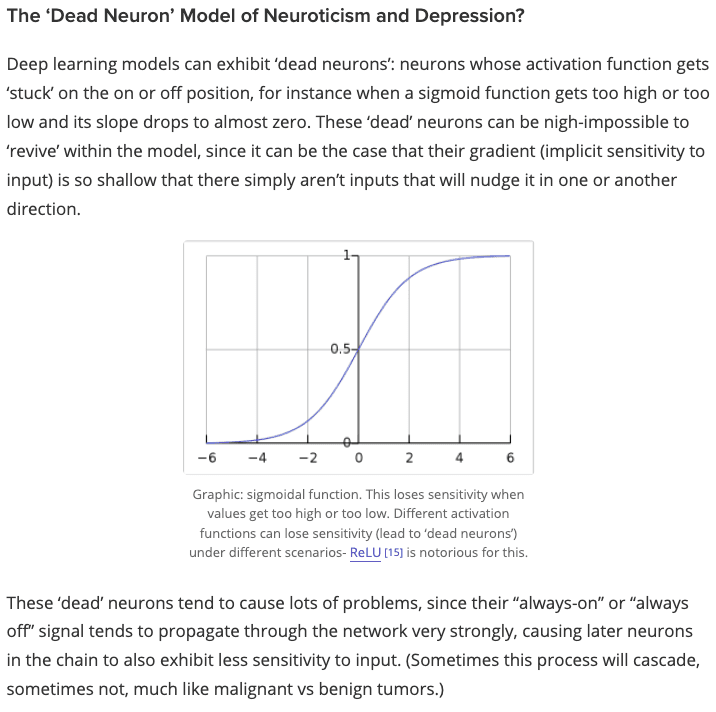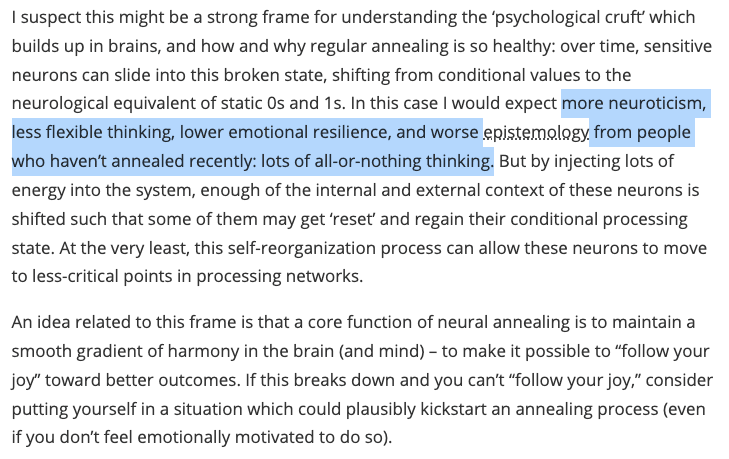🧵 View Thread
🧵 Thread (16 tweets)

one of the first things you learn when you start writing mathematical proofs is the principle of explosion: from a single false premise you can derive any conclusion, true or false. interesting to reflect on how this has shaped my thinking and orientation towards truth

the principle of explosion gives falsehoods this viral infectious quality - make a single mistake in a proof and nothing you write from that point on can be trusted. this is why cranks think they have a 1-page proof of the riemann hypothesis etc, all it takes is one mistake

it’s kind of amazing from this pov how well humans can function while believing things that are wildly false. there’s a whole thread of rationality that consists of being offended by this observation. “muh dutch book arguments” etc.

mostly i don't think it's too hard to account for this though. most people just don't believe things in anything like the way mathematicians believe mathematical statements, for many reasons. beliefs in the wild are highly contextual and/or for signaling https://t.co/lWJMPtXffk

i do think though that the principle of explosion correctly points towards the consequences of holding a false belief sufficiently *rigidly* and *globally*. if there's a thing you've decided is always good or always bad, and you're committed to ignoring exceptions...

...then the principle of explosion suggests, correctly imo, that there's no upper limit to how insane your beliefs or your behavior can get, starting from that false, rigid, global premise. the more universally and rigidly you apply your pet falsehood the worse things get

ime this sort of thing happens because the false, rigid, global belief is psychologically load-bearing in some way, it would be psychologically devastating somehow to admit that there were any exceptions whatsoever, it would break some kind of faith you have in something

or maybe it would feel like conceding territory to some enemy who is pure evil and cannot be allowed to win anything under any circumstances. we're getting into borderline splitting territory here basically: black-and-white thinking, no nuance, all good or all bad, etc.

ah we can also bring in "dead neurons" from the QRI post on neural annealing: a neuron in a neural network that gets stuck at either 0 or 1, becomes insensitive to new information, and propagates its own stuckness and insensitivity through the network https://t.co/rNASpum01Z https://t.co/uJTiZdxCqe


this is a technical metaphor for understanding how people can end up mentally and emotionally inflexible if they don't "anneal" - e.g. by taking psychedelics or otherwise experiencing ecstatic states that shake up and loosen their beliefs https://t.co/ueS6uzFpaP https://t.co/Z3gMa32FD4



once you've admitted 0=1 into your value system, you can use that to prove all sorts of ridiculousness in math: 0+1=1+1 ➡️ 1 = 2 10¹=10² ➡️ 10 = 100 i¹=i² ➡️ i = -1 in values: 😳 suffering is pleasure, actually 🚩 cruelty is love, actually ☝️ bullshit is true, actually

@QiaochuYuan That's the psychological feeling. I think the underlying computation just gets converted to a stuck 1 or 0 bit which is way way more energy efficient and therefore is a local minimum that it is hard to get out of.

@RomeoStevens76 the neural annealing post from QRI talks about "dead neurons" which i liked as an evocative precise metaphor https://t.co/ueS6uzFpaP https://t.co/eF1jNRysti


@QiaochuYuan I'm playing with offsetting that principle by holding explicit, contradictory beliefs I felt the shortcoming of "consistent worldview with bad axioms" acutely: when you're living in math mode transitive property & believe A->B you end up with awful C's https://t.co/Svgpg8eW2l

Recent belief system upgrade: Life is so rich when you hold contradictory or paradoxical beliefs. The more the better. blue is my favorite color. revel in the sky's delight I hate blue and it makes me sad. act on it! toss a blanket over the blue water bottle when you sleep.

@QiaochuYuan I'm playing with offsetting that principle by holding explicit, contradictory beliefs I felt the shortcoming of "consistent worldview with bad axioms" acutely: when you're living in math mode transitive property & believe A->B you end up with awful C's https://t.co/Svgpg8eW2l

Recent belief system upgrade: Life is so rich when you hold contradictory or paradoxical beliefs. The more the better. blue is my favorite color. revel in the sky's delight I hate blue and it makes me sad. act on it! toss a blanket over the blue water bottle when you sleep.